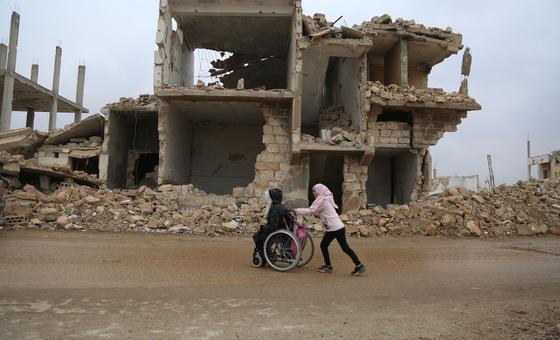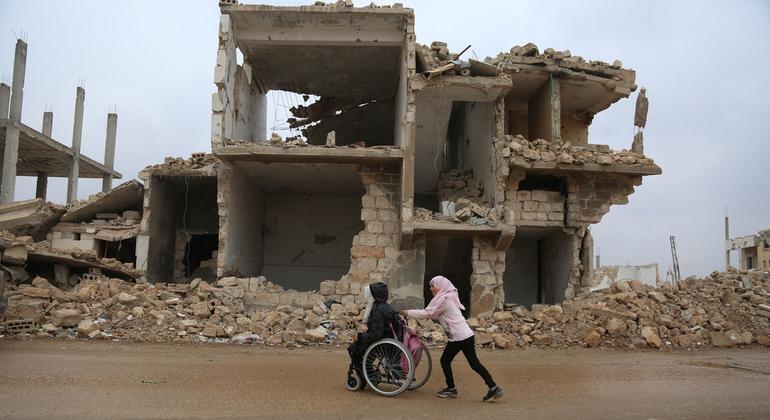
Paulo Pinheiro spoke to UN News this week after presenting his latest report to the UN General Assembly’s Third Committee, which examines a range of social, humanitarian affairs and human rights issues.
The Syrian war, which began in March 2011, is at its “worst point” in four years, he said, while stressing that the escalating violence is not a consequence of any other conflict.
International involvement
“This aggravation is a result of the presence of different Member States in the theatre of operation,” he said, listing Türkiye, Russia, and the United States, as well as forces connected to the Kurdish population in the northeast.
The Commission of Inquiry was established by the UN Human Rights Council in Geneva in August 2011 to investigate all alleged violations of international human rights law in Syria since the start of the war.
Although not in his mandate, Mr. Pinheiro pointed to two situations in Syria that he said are linked to the current conflict between Israel and Palestine, with the first being Israeli airstrikes against the airports in Damascus and Aleppo – both critical for humanitarian aid flows into the country.
“Another connected complicator is the presence of Hezbollah – that is a political force, military force, in Lebanon but it is also present in the theatre of operations in Syria,” he said.
‘Competition’ for coverage
Mr. Pinheiro also lamented “the competition for visibility in the international media”, saying “at this time, it’s difficult to try to remind the world that the war in Syria continues.”
The UN and partners continue to respond to the immense humanitarian needs in Syria, where more than 15 million people require assistance– a 9 per cent increase over last year.
Last month, the UN welcomed the resumption of aid deliveries into northwest Syria via a border crossing with Türkiye.
The Bab al-Hawa border crossing had closed in July after the UN Security Council failed to reach consensus on two competing resolutions seeking to renew the aid corridor.
Some four million people in northwest Syria – the last rebel-held stronghold – rely on the lifeline, which was established nearly a decade ago through a UN Security Council resolution.
Communities on both sides of the border were also devastated by deadly earthquakes in February, contributing to rising needs.



